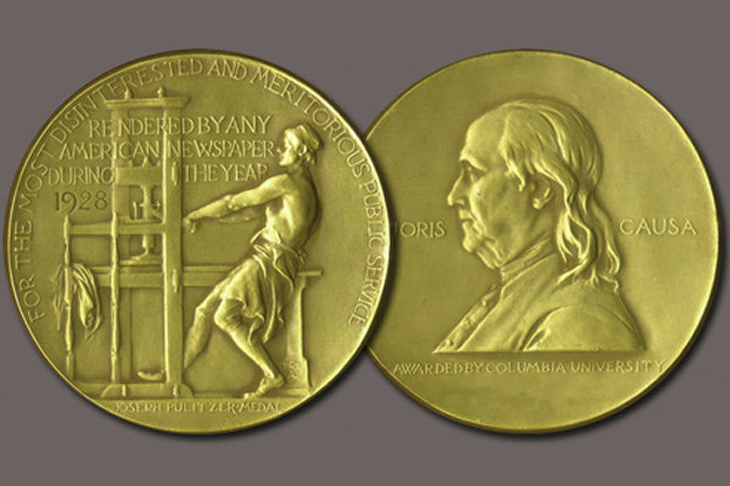Several journalism organizations, news guilds, associations and publications have sent an open letter to the Pulitzer Prize asking that any newsroom that does not participate in the annual News Leaders Association “diversity survey” be excluded from consideration for the various awards in journalism:
Our country is reckoning with racial inequity and many in the journalism industry can’t or won’t provide essential newsroom transparency on staff diversity. If we can’t collect crucial data, how do we expect to improve newsroom diversity and represent our communities? NLA is the only organization that has collected this essential data for more than forty years and it must continue, but it will only continue if news organizations are incentivized to participate in these demographic surveys.
The letter continues that by “implementing this new criteria [sic], the Pulitzers would honor not only great journalism, but journalism from newsrooms willing to be accountable to the public.” That’s an interesting phrase, isn’t it — “accountable to the public”? Which public? Accountable how?
There’s the obvious threat that newsrooms not considered diverse enough according to the NLA — or other organizations, groups, and random journalists — will either be blacklisted from the award or become the object of protest. No wonder some newsrooms would prefer not to participate.
Appeals to “transparency” are almost never transparent. People making such appeals may think they are simply asking for information to confirm that nothing amiss is taking place, but they are rarely aware of their own ulterior motives, which may include, ahem, punishing organizations or people with different political points of view.
In other news
Speaking of journalism, Peter Hitchens remembers his early years in the newsroom when an older colleague suggested he gain some weight.
Roman mosaics discovered under Croatian streets: “A group of ancient Roman mosaics dating from the second century CE were hidden under the city streets of Stari Grad, on the idyllic Hvar Island in Croatia. Archaeologists discovered the stunning mosaic floors in February, before the city began construction on sewage and water pipes.”
“Nothing goes as planned in Ada Calhoun’s Also a Poet: Frank O’Hara, My Father, and Me, but that’s precisely why it captivates.” Steph Buschardt reviews.
Revisiting Paul Fussell’s 1975 The Great War and Modern Memory:
Through masterly close reading, Fussell discovered that the ironic temperament arose through the brutalization of the refined British sentiments exemplified by Siegfried Sassoon, Edmund Blunden, Robert Graves, and others. More recent historians have noted the weakness of Fussell’s account is its asking the writings of a handful of educated, literary, and comfortably raised officers to represent the experience of millions of regulars and conscripts who fought for Great Britain. Yet the horrid metamorphosis that Fussell so empathetically documents in these men might be better assessed by its resonance with contemporary life in Western societies. What makes The Great War so harrowing to read is its conviction that our cheap sardony and cynicism were christened in the misery and pain of people who knew and lost another way to feel.
An account of the Battle of Slavyansk and the Minsk Accords, which so far has yet to be published in English, has lessons for today:
One of the voices that predicted that Russia would face a tough fight in Ukraine was none other than Strelkov. In various interviews and public appearances, he warned that the Ukrainian military would put up stiff resistance and that Russia needed to be prepared for a major shift in public opinion that had taken place in Ukraine since 2014. At the same time, Strelkov argued that Russia needed to do everything possible to secure a swift victory, since a prolonged conflict increased the likelihood that NATO countries would provide substantial military support to Ukraine.
“On TikTok and online, the youngest workers are rejecting work as we know it. How will that play out IRL?” Terry Nguyen reports.
In my latest at The Spectator World, I write about fishing:
I am a recreational — not an avid — angler and will probably only fish a dozen or two times over the next months. I don’t mind if I don’t catch anything. There are moments, even, when I think I would almost prefer not to catch anything because it would interrupt the experience of floating on the lake and looking. I might say fishing is merely an excuse for me to do this — sit and think of nothing in particular, which isn’t the same as thinking of nothing at all — but that’s not right. I still want to catch something, and it is the possibility of catching something that makes sitting on a boat along the shoreline just functional enough to enjoy for itself.


















